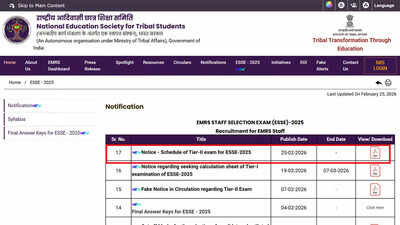This degree can help you earn in millions in companies like Meta

A recent Wall Street Journal report has revealed the intensity of Meta’s latest recruitment push, targeting the upper echelon of artificial intelligence researchers. At the centre of the effort is a carefully compiled roster, internally referred to as “The List”, featuring some of the most accomplished professionals in the field.These individuals are not ordinary hires; they are often PhD graduates from institutions like the University of California, Berkeley, and Carnegie Mellon University. Many have worked at the world’s most influential AI labs, including OpenAI in San Francisco and Google DeepMind in London. Their work revolves around solving technical problems of extraordinary complexity, requiring vast computing resources and a rare blend of mathematical and engineering skills.
What “The List” looks for
According to WSJ, The List prioritises researchers with advanced qualifications in AI-related disciplines, a strong command of calculus, linear algebra, and probability theory, and a portfolio of significant contributions to machine learning and algorithmic design.The recruitment process goes beyond scanning CVs. It includes analysing academic publications, tracking major AI breakthroughs, and strategically approaching candidates through direct channels such as email, messaging apps, and professional networks.
Why are salaries reaching the stratosphere
The competition for AI talent has reached levels that mirror an arms race. Meta’s offers, often in the multi-million-dollar range, are designed to lure specialists who can accelerate the company’s ambitions in building advanced AI systems.One striking example is Alexandr Wang, founder of Scale AI, whose company secured a $14 billion investment from Meta. At 28, Wang is now leading key aspects of Meta’s AI development, illustrating the scale of investment the company is willing to commit to secure the right expertise.
Pressure on competitors
The WSJ report notes that Meta’s strategy has placed significant pressure on rivals, especially OpenAI. Sources indicate that multiple researchers have been approached, prompting OpenAI to revise its compensation structures. In one instance, internal communications urged employees not to be swayed by competing offers, underscoring how valuable these researchers have become.
The degree that opens the door
For those aspiring to join this elite circle, the entry point is clear but demanding: Advanced academic training in AI-focused fields. PhDs in machine learning, computer science, applied mathematics, or computational neuroscience form the backbone of the qualifications sought.These programmes demand years of research, deep mathematical expertise, and the ability to contribute to the global body of AI knowledge. The skill set is so rare that it commands salaries capable of transforming careers, and bank accounts.
A small world with high stakes
The AI research community is tightly connected. Many leading figures know each other personally, sharing job offers and industry news in private Slack and Discord channels. This interconnectedness means a recruitment move by one company can trigger ripple effects across the sector, as competing firms rush to protect their own talent pools.
From equations to earnings
The Wall Street Journal’s reporting makes it evident: In the AI era, mastery of mathematics is no longer just an academic achievement, it’s a commercial asset of extraordinary value. Those who can design algorithms, manipulate data models, and drive AI innovation are shaping the future of technology while securing earnings that rival the highest-paying industries in the world.For the next generation of students and researchers, the message is clear: The road to a multi-million-dollar role in companies like Meta may well begin with a rigorous degree, and an exceptional command of the language of machines.





